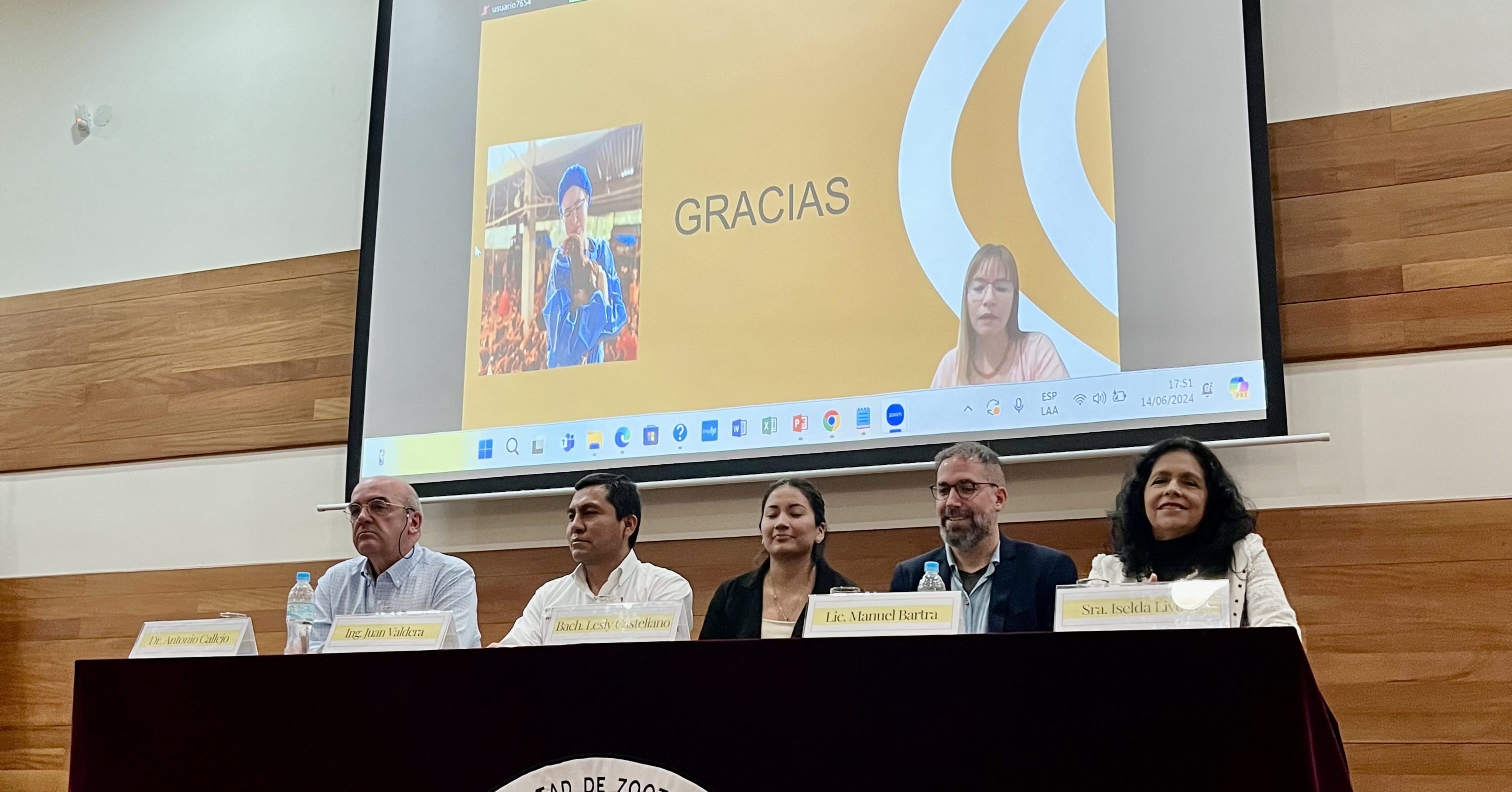Hello everyone!
On Friday, June 14 ARBA was part of the working group entitled MARCO LEGAL DE BIENESTAR ANIMAL EN GALLINAS PONEDORAS EN LA REALIDAD ACTUAL EUROPEA Y LATINOAMERICANA en la Universidad nacional Agraria de la Molina en Lima. Peru
Universidad Nacional Agraria de la Molina is an academic community that offers society high-quality professional, humanistic, scientific and technological training in the agricultural, forestry, fishing, food and economic sectors; generating knowledge and developing skills through basic and applied research for innovation.
https://drive.google.com/drive/folders/1UveZN7nj0ln-IGpf9lKDJl_Bgx6NtMWi?usp=sharing
We are inspired to see how the union of different actors and sectors has allowed progress in the protection of laying hens in Peru. The collaboration between universities, ministries, civil society organizations, farmers and students has created an environment of learning and exchange that will undoubtedly enrich the work in favor of animals.
By joining efforts and working together towards a common goal, such as opening cages for laying hens, we demonstrate the power of collaboration and solidarity. This is a breakthrough of how diversity of opinions and experiences can enrich and strengthen pro-animal initiatives, so let's go for more!



